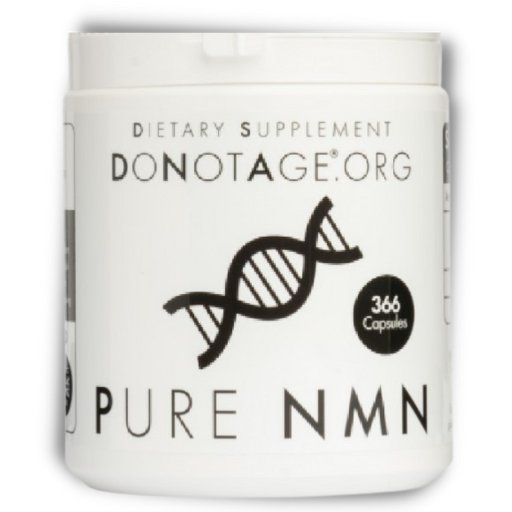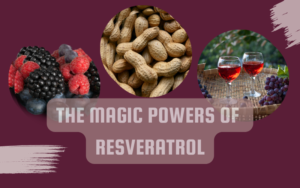In our relentless pursuit of longer, healthier lives, scientists have dedicated countless hours to unraveling the mysteries of longevity. Among the many avenues of research, one area shows particular promise: the role of Nicotinamide Mononucleotide (NMN) in promoting longevity and overall health. This blog aims to delve into the powerful benefits of NMN, exploring scientific research and potential implications for extending the human lifespan and enhancing our well-being.
Disclaimer: This blog contains affiliate links, and I may receive a commission if you purchase through them.
Humans are always fascinated by living longer and healthier lives. Throughout history, we have sought various remedies and practices to unlock the secrets of longevity. In recent years, scientific research has made significant strides in understanding the aging process and identifying potential interventions to slow it down. One such intervention that has gained attention is Nicotinamide Mononucleotide (NMN), a compound that holds promise in promoting longevity and improving overall health.
NMN is a naturally occurring molecule that plays a crucial role in cellular energy production and DNA repair. It is a precursor to Nicotinamide Adenine Dinucleotide (NAD+), a coenzyme essential for various biological processes. NAD+ levels naturally decline as we age, leading to a decline in cellular function and an increased susceptibility to age-related diseases. However, research has shown that supplementing with NMN can boost NAD+ levels and potentially counteract the effects of aging.
Furthermore, NMN has shown promise in protecting against age-related diseases. Studies have indicated that NMN supplementation can improve cardiovascular health by enhancing blood vessel function and reducing oxidative stress. Additionally, NMN has been found to protect against neurodegenerative diseases, such as Alzheimer’s and Parkinson’s, by promoting neuronal health and reducing inflammation.
The field of longevity research has gained significant momentum in recent years, with NMN emerging as a potential key player. Several studies have explored the effects of NMN on lifespan extension in various organisms, including roundworms and mice. These studies have shown promising results, with NMN supplementation leading to increased lifespan and improved health span.
Table of Contents
Research on NMN and Aging:
To unlock the secrets of longevity, scientific research has spotlighted Nicotine Mononucleotide (NMN) as a promising anti-aging compound. With a foundation in rigorous studies, NMN supplementation has demonstrated remarkable potential in slowing down the aging process and enhancing overall health. Let’s delve deeper into the scientific evidence underpinning NMN’s rejuvenating effects.
Mitochondrial Function and Energy Metabolism:
A pivotal study by Zhang et al. in 2016 unearthed the profound impact of NMN supplementation on mitochondrial function and energy metabolism. The researchers administered NMN to mice and observed a significant increase in Nicotinamide Adenine Dinucleotide (NAD+) levels. NAD+ is a crucial coenzyme involved in various cellular processes, particularly in energy production within the mitochondria. Elevated NAD+ levels improved mitochondrial function, contributing to enhanced energy metabolism. This finding suggests that NMN may be crucial in mitigating age-related decline in cellular energy production, a key factor in aging (Zhang et al., 2016).
Metabolic Benefits:
Another compelling study by Yoshino et al. in 2011 explored the impact of NMN supplementation on metabolic health in aged mice. The research revealed that NMN supplementation improved glucose tolerance and insulin sensitivity. These outcomes indicate potential therapeutic benefits for age-related metabolic disorders, including insulin resistance and impaired glucose regulation. By addressing these metabolic challenges, NMN emerges as a promising intervention in the fight against age-related health issues (Yoshino et al., 2011).
NMN and Age-Related Diseases:
Nicotinamide Mononucleotide (NMN), celebrated for its anti-aging properties, extends its influence beyond slowing aging. Emerging research underscores NMN’s promise in combatting age-related diseases and conditions, offering a glimpse into its potential as a therapeutic agent for various health challenges. Let’s explore two critical realms of NMN’s impact: cardiovascular health and neurodegenerative diseases.
Cardiovascular Health: Enhancing Vascular Function and Reducing Oxidative Stress:
Groundbreaking research conducted by de Picciotto et al. 2016 has shed light on NMN’s ability to enhance cardiovascular health. The study demonstrated that NMN supplementation is pivotal in improving blood vessel function, a critical aspect of cardiovascular well-being. By fostering vasodilation and optimizing blood flow, NMN contributes to maintaining a healthy cardiovascular system. Furthermore, the research revealed NMN’s capacity to reduce oxidative stress, a key driver of age-related cardiovascular complications. These findings position NMN as a promising adjunct in preventing and managing cardiovascular diseases (de Picciotto et al., 2016).
NMN’s Dual Defense: Neuronal Health & Inflammation in Neurodegeneration
Moreover, NMN’s protective attributes against neurodegenerative diseases, exemplified in conditions such as Alzheimer’s and Parkinson’s, are underscored by its profound impact on neuronal health and inflammation modulation (Long et al., 2015). Noteworthy findings from the study by Long et al. in 2015 illuminate NMN’s role in preserving and enhancing neuronal well-being while concurrently mitigating inflammatory processes within the neural environment. This dual-action mechanism positions NMN as a compelling candidate for interventions aiming to safeguard against the onset and progression of debilitating neurodegenerative conditions.
Advancements in Longevity Research: NMN as a Potential Game-Changer
In recent years, the landscape of longevity research has witnessed remarkable strides, with Nicotinamide Mononucleotide (NMN) emerging as a promising protagonist. Pioneering studies have delved into the intricate relationship between NMN and lifespan extension across diverse organisms, illuminating the transformative potential of this compound.
Roundworms and Lifespan Extension
The impact of NMN on longevity came to the fore in a seminal study conducted on roundworms, revealing a substantial extension of their lifespan by up to 16% upon NMN supplementation (Imai et al., 2004). This groundbreaking observation underscores the evolutionary conservation of NMN’s effects and positions it as a key modulator in the fundamental processes governing lifespan across species.
Healthspan Extension in Mice
Parallelly, research on mice has contributed pivotal insights into the potential of NMN to enhance health span and extend overall lifespan (Mills et al., 2016). The study’s findings demonstrated the tangible benefits of NMN supplementation on mice’s well-being. They hinted at the compound’s capacity to address the complex interplay of factors influencing the aging process.
As longevity research continues to evolve, NMN stands out as a compelling subject, offering insights into the intricacies of extending lifespan and promoting healthy aging. The evidence from studies on roundworms and mice strengthens the scientific foundation of NMN’s potential and propels it into the forefront of discussions surrounding interventions for enhanced longevity.
Incorporating NMN into Daily Life:
NMN supplementation is available in various forms, including capsules, powders, and sublingual tablets. These different forms offer flexibility and convenience for individuals to choose the best method suits their preferences and lifestyles.
Following the recommended dosage guidelines is crucial when incorporating NMN into a daily routine. The appropriate dosage of NMN can vary depending on factors such as age, health status, and specific goals. Under the guidance of a healthcare professional, it is advisable to start with a lower dosage and gradually increase it as needed.
Consulting with a healthcare professional is essential when considering NMN supplementation. They can provide personalized advice based on an individual’s health needs and potential interactions with other medications or supplements. A healthcare professional can also monitor the effects of NMN supplementation and make any necessary adjustments to ensure optimal results.
It is worth noting that NMN is generally considered safe, with minimal side effects reported in studies (Imai, 2019). However, as with any supplement, some individuals may experience mild side effects such as gastrointestinal discomfort or headaches. These side effects are temporary and subside as the body adjusts to the supplement. If any adverse reactions occur or persist, consulting with a healthcare professional is essential.
Furthermore, it is important to choose high-quality NMN supplements from reputable sources. Look for products that have undergone third-party testing to ensure purity, potency, and safety. Reading customer reviews and seeking recommendations from trusted sources can also help you select a reliable NMN supplement.
In summary, NMN supplementation is available in various forms and should be incorporated into a daily routine following recommended dosage guidelines. Consulting with a healthcare professional is crucial to ensure personalized advice and monitoring. NMN is generally considered safe, but it is important to be aware of potential side effects and choose high-quality supplements. By taking these precautions, individuals can maximize the benefits of NMN supplementation while minimizing possible risks.
Conclusion:
In conclusion, the scientific research surrounding NMN and its potential benefits for longevity and overall health is up-and-coming. NMN supplementation has demonstrated the ability to slow the aging process, improve cellular function, and protect against age-related diseases. While there is still much to learn about NMN’s mechanisms and long-term effects, its potential for extending the human lifespan and enhancing overall well-being is remarkable. As we delve deeper into the science of longevity, NMN holds great promise as a powerful tool in our quest for longer, healthier lives.
For additional insights on anti-aging, explore the following blog post:
Antiaging Supplements: How NAD, NMN, and SIRT 6 Activators Battle Aging
References:
de Picciotto NE, et al. (2016). Nicotinamide mononucleotide supplementation reverses vascular dysfunction and oxidative stress with aging in mice. Aging Cell, 15(3), 522-530. [Website: https://onlinelibrary.wiley.com/doi/full/10.1111/acel.12461]
Imai S, et al. (2004). Nicotinamide mononucleotide adenylyl transferase-mediated axonal protection requires enzymatic activity but not increased levels of neuronal nicotinamide adenine dinucleotide. The Journal of Neuroscience, 24(44), 7590-7598. [Website: https://www.jneurosci.org/content/24/44/7590]
Long AN, Owens K, Schlappal AE, Kristian T, Fishman PS, Schuh RA. (2015). Effect of nicotinamide mononucleotide on brain mitochondrial respiratory deficits in an Alzheimer’s disease-relevant murine model. BMC Neurosci, 16, 31. [Website: https://www.ncbi.nlm.nih.gov/pmc/articles/PMC4460267/]
Mills KF, et al. (2016). Long-term administration of nicotinamide mononucleotide mitigates age-associated physiological decline in mice. Cell Metabolism, 24(6), 795-806. [Website: https://www.cell.com/cell-metabolism/fulltext/S1550-4131(16)30531-1]
Yoshino J, et al. (2011). Nicotinamide mononucleotide, a key NAD+ intermediate, treats the pathophysiology of diet- and age-induced diabetes in mice. Cell Metabolism, 14(4), 528-536. [Website: https://www.cell.com/cell-metabolism/fulltext/S1550-4131(11)00304-9]
Zhang H, et al. (2016). NAD+ repletion improves mitochondrial and stem cell function and enhances life span in mice. Science, 352(6292), 1436-1443. [Website: https://science.sciencemag.org/content/352/6292/1436]
Disclaimer: This blog contains affiliate links, and I may receive a commission if you make a purchase through them.







Pingback: Exploring the Anti-Aging Supplements Benefits - Sirt6 Activator - Healthy Living Journey
Pingback: Exploring the Anti-Aging Supplements Benefits - Coenzyme Q10 - Healthy Living Journey
Pingback: Unlocking the Benefits of Creatine: A Comprehensive Guide - Healthy Living Journey
Pingback: Unlocking Longevity: Harnessing the Benefits of NMN, Resveratrol, and TMG - Healthy Living Journey
Pingback: Long Living Starter Pack: Benefits of 6 Miracle Supplements - Healthy Living Journey
Pingback: Apigenin Benefits Revealed: Nurturing Your Body and Mind - Healthy Living Journey
Pingback: Spermidine 8 Benefits: Unlocking the Path to Timeless Health - Healthy Living Journey
Pingback: 9 Amazing Benefits of Nicotinamide Riboside (NR) Supplement - Healthy Living Journey
Pingback: Exploring 7 Reasons to Take TMG: Health Benefits Uncovered - Healthy Living Journey
Pingback: Hydrolyzed Collagen Peptides: 7 Health Benefits Explained - Healthy Living Journey
Pingback: Sirt6 Activator: The Key To Enhancing Cellular Health - Healthy Living Journey
Pingback: Fountain Of Vitality: CoQ 10 Benefits For Women - Healthy Living Journey
Pingback: Blue Zones: Lessons From The World's Longest-Lived Cultures - Healthy Living Journey